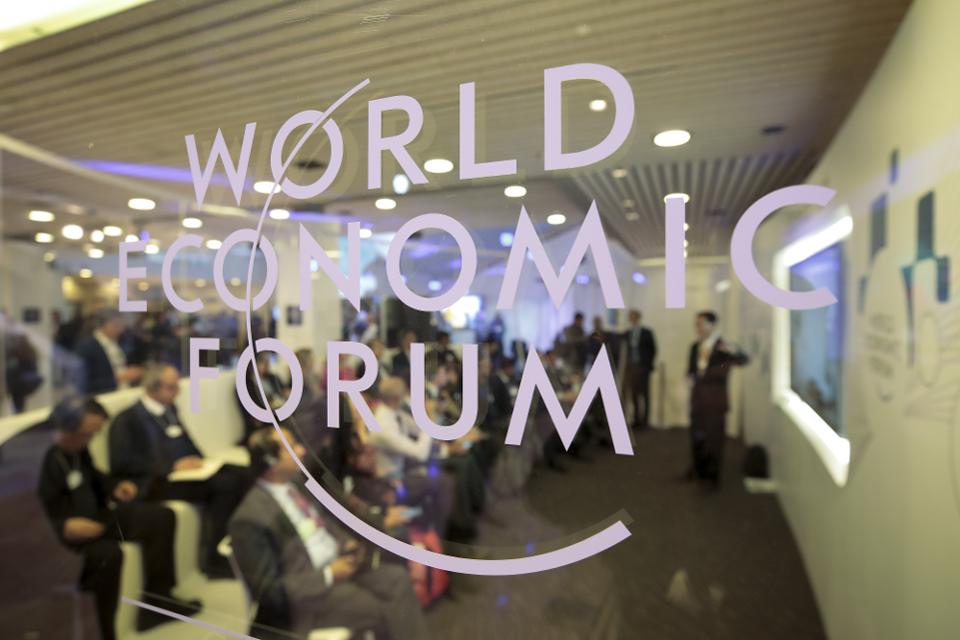Eleanor Roosevelt famously said “The future belongs to those who believe in the beauty of their dreams”.
copyright by www.forbes.com
 Eleanor Roosevelt famously said “The future belongs to those who believe in the beauty of their dreams”. In today’s chaotic world, the future belongs to those who can imagine, influence, create and collaborate . As I wrote in my pre-Davos piece , it is important for each of us to rise above the urgency of our daily to-do lists to engage in the conversations that are shaping our fast-changing world. We have more ways than ever to do that whether we attend Davos or not.
Eleanor Roosevelt famously said “The future belongs to those who believe in the beauty of their dreams”. In today’s chaotic world, the future belongs to those who can imagine, influence, create and collaborate . As I wrote in my pre-Davos piece , it is important for each of us to rise above the urgency of our daily to-do lists to engage in the conversations that are shaping our fast-changing world. We have more ways than ever to do that whether we attend Davos or not.
Here are the questions that World Economic Forum (WEF) asks of us: How do we save the planet without killing economic growth? Can you be a patriot and a global citizen? What should work look like in the future? How do we make sure technology makes life better not worse? How do we create a fairer economy? How do we get countries working together better?
This is a brief recap of the highlights of my week at WEF from the perspective of someone deeply interested in how leaders can create a better future amidst chaos. It is also a call to each of us to widen our perspective and to add our much-needed voice to the essential challenges of our time.
It is obvious the moment you drive up through the 4-ft snow-banks into Davos that there are many agendas happening, global and individual. With 600+ simultaneous sessions on topics ranging from Globalization 4.0 to the need to reskill millions of people during the 4th industrial revolution, to impacts of climate change, to cybersecurity and technology policy, your individual agenda drives what you curate on your calendar. It is the place that more Fortune 500 CEO’s can look each other in the eye to make deals in 30 minute meetings. It’s the place that heads of state can drive their agenda to engage (or not) in the world. This year several heads of state (US, France, UK, China) were conspicuously missing, some dealing with troubles at home. It’s also the place where leaders seek to influence in the chaos where no one is in charge but everyone is impacted by the others’ actions. What are the leadership qualities required to do that?
Leadership 4.0 was coined by WEF founder Klaus Schwab in 2016. He suggested that we need a new model to lead in the 4th industrial revolution: “We need leaders who are emotionally intelligent, and able to model and champion co-operative working. They’ll coach, rather than command; they’ll be driven by empathy, not ego. The digital revolution needs a different, more human kind of leadership.” […]
read more – copyright by www.forbes.com


Eleanor Roosevelt famously said “The future belongs to those who believe in the beauty of their dreams”.
copyright by www.forbes.com
Here are the questions that World Economic Forum (WEF) asks of us: How do we save the planet without killing economic growth? Can you be a patriot and a global citizen? What should work look like in the future? How do we make sure technology makes life better not worse? How do we create a fairer economy? How do we get countries working together better?
This is a brief recap of the highlights of my week at WEF from the perspective of someone deeply interested in how leaders can create a better future amidst chaos. It is also a call to each of us to widen our perspective and to add our much-needed voice to the essential challenges of our time.
It is obvious the moment you drive up through the 4-ft snow-banks into Davos that there are many agendas happening, global and individual. With 600+ simultaneous sessions on topics ranging from Globalization 4.0 to the need to reskill millions of people during the 4th industrial revolution, to impacts of climate change, to cybersecurity and technology policy, your individual agenda drives what you curate on your calendar. It is the place that more Fortune 500 CEO’s can look each other in the eye to make deals in 30 minute meetings. It’s the place that heads of state can drive their agenda to engage (or not) in the world. This year several heads of state (US, France, UK, China) were conspicuously missing, some dealing with troubles at home. It’s also the place where leaders seek to influence in the chaos where no one is in charge but everyone is impacted by the others’ actions. What are the leadership qualities required to do that?
Leadership 4.0 was coined by WEF founder Klaus Schwab in 2016. He suggested that we need a new model to lead in the 4th industrial revolution: “We need leaders who are emotionally intelligent, and able to model and champion co-operative working. They’ll coach, rather than command; they’ll be driven by empathy, not ego. The digital revolution needs a different, more human kind of leadership.” […]
read more – copyright by www.forbes.com
Share this: